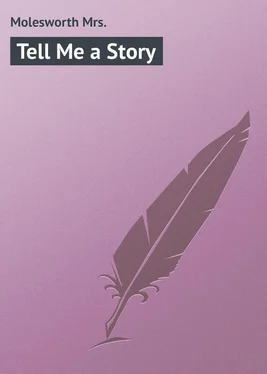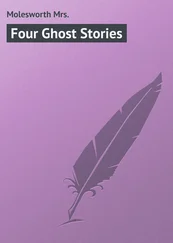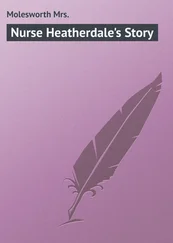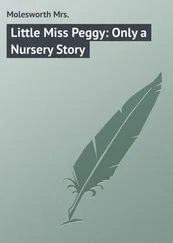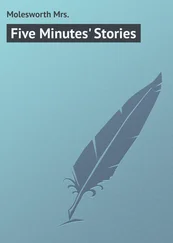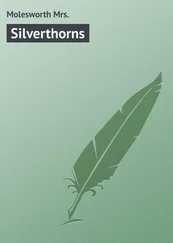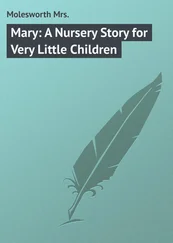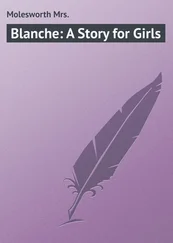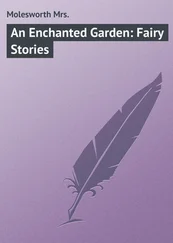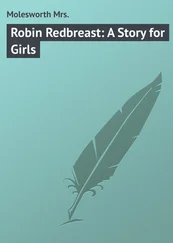Mrs. Molesworth - Tell Me a Story
Здесь есть возможность читать онлайн «Mrs. Molesworth - Tell Me a Story» — ознакомительный отрывок электронной книги совершенно бесплатно, а после прочтения отрывка купить полную версию. В некоторых случаях можно слушать аудио, скачать через торрент в формате fb2 и присутствует краткое содержание. Жанр: foreign_prose, на английском языке. Описание произведения, (предисловие) а так же отзывы посетителей доступны на портале библиотеки ЛибКат.
- Название:Tell Me a Story
- Автор:
- Жанр:
- Год:неизвестен
- ISBN:нет данных
- Рейтинг книги:5 / 5. Голосов: 1
-
Избранное:Добавить в избранное
- Отзывы:
-
Ваша оценка:
- 100
- 1
- 2
- 3
- 4
- 5
Tell Me a Story: краткое содержание, описание и аннотация
Предлагаем к чтению аннотацию, описание, краткое содержание или предисловие (зависит от того, что написал сам автор книги «Tell Me a Story»). Если вы не нашли необходимую информацию о книге — напишите в комментариях, мы постараемся отыскать её.
Tell Me a Story — читать онлайн ознакомительный отрывок
Ниже представлен текст книги, разбитый по страницам. Система сохранения места последней прочитанной страницы, позволяет с удобством читать онлайн бесплатно книгу «Tell Me a Story», без необходимости каждый раз заново искать на чём Вы остановились. Поставьте закладку, и сможете в любой момент перейти на страницу, на которой закончили чтение.
Интервал:
Закладка:
“What will you have to play with?” she asked. “Would you like my workbox?”
“I don’t know,” said Louisa, doubtfully. “Mamma,” she continued, after a moment’s silence, “can queens never do what they like?”
“Very often they can’t,” replied her mamma. “What makes you ask?”
“I dreamt I was a queen,” said Louisa.
“Did you? What country were you queen of?”
“I was queen of the reel fairies,” replied the child gravely. Her mother looked mystified “Tell me what you mean, dear,” she said. “Tell me all about it.”
So bit by bit Louisa explained the whole, and her mamma had for once a peep into that strange, fantastic, mysterious world, which we call a child’s imagination. She had a glimpse of something else too. She saw that her little girl was in danger of getting to live too much alone, was in need of sympathy and companionship.
“I think it was what Frances Gordon said that made me dream about being a queen,” she said.
“And do you still wish you were a queen?” said her mamma.
“No,” said Louisa.
“A princess then?”
“No,” she replied again. “But, mamma – ”
“Well, dear?”
“I do wish sometimes that I was pretty, and that – that – I don’t know how to say it – that people made a fuss about me sometimes.”
Her mamma looked a little grave and a little sad; but still she smiled. She could not be angry – thought Louisa.
“Is it naughty, mamma?” she whispered.
“Naughty? No, dear; it is a wish most little girls have, I fancy – and big ones too. But some day you will understand how it might grow into a wrong feeling, and how on the other side a little of it may be useful to help good feelings. And till you understand better, dear, doesn’t it make you happy to know that to me you could not be dearer if you were the most beautiful little princess in the world.”
“As beautiful as Princess Fair Star, mamma?”
“Yes, or any other princess you can think of. I would rather have my little mouse of a girl than any of them.”
Louisa nestled closer to her mamma with great satisfaction. “I like you to call me your mouse, mamma; and do you know I almost think I like having a cold.”
Her mother laughed. “Am I making a little fuss about you? Is that what you like?”
Louisa laughed too.
“Do you think I should leave off playing with the reels, and making stories about them, mamma? Is it silly?”
“No, dear, not if it amuses you,” said her mother.
But though Louisa did not leave off playing with the reels altogether, she gradually came to find that she preferred other amusements. Her mother taught her several pretty kinds of work, and read aloud stories to her more often than formerly. And, somehow, Louisa never again cared quite as much for her old friends. She thought the Chinese princesses had grown rather “stuck-up” and affected, and she could not get over a strong suspicion that “Clarke’s Number 12” was very ready to be impertinent, if he could ever again get a chance.
Chapter Three.
Good-Night, Winny
“Say not good-night – but, in some brighter clime, Bid me good-morning!”
When I was a little girl I was called Meg. I do not mean to say that I have got a different name now that I am big, but my name is used differently. I am now called Margaret, or sometimes Madge, but never Meg. Indeed I do not wish ever to be called Meg, for a reason you will quite understand when you have heard my story. But perhaps I am wrong to call it a “story” at all, so I had better say at the beginning that what I have to tell you is only a sort of remembrance of something that happened to me when I was very little – of some one I loved more dearly, I think, than I can ever love any one again. And I fancy perhaps other little girls will like to hear it.
Well then, to begin again – long ago I used to be called Meg, and the person who first called me so was my sister Winny, who was not quite two years older than I. There were four of us then – four little sisters – Winny, and I, and Dolly, and Blanche, baby Blanche we used to call her. We lived in the country in a pretty house, which we were very fond of, particularly in the summer time, when the flowers were all out. Winny loved flowers more dearly than any one I ever knew, and she taught me to love them too. I never see one now without thinking of her and the things she used to say about them. I can see now, now that I am so much older, that Winny must have been a very clever little girl in some ways, not so much in learning lessons as in thinking things to herself, and understanding feelings and thoughts that children do not generally care about at all. She was very pretty too, I can remember her face so well. She had blue eyes and very long black eyelashes – our mamma used to teaze her sometimes, and say that she had what Irish people call “blue eyes put in with dirty fingers” – and pretty rosy cheeks, and a very white forehead. And her face always had a bright dancing look that I can remember best of all.
We learnt lessons together, and we slept together in two little beds side by side, and we did everything together, from eating our breakfast to dressing our dolls – and when one was away the other seemed only half alive. All our frocks and hats and jackets were exactly the same, and except that Winny was taller than I, we should never have known which was which of our things. I am sure Winny was a very good little girl, but when I try to remember all about her exactly, what seems to come back most to me is her being always so happy. She did not need to think much about being good and not naughty; everything seemed to come rightly to her of itself. She thought the world was a very pretty, nice place; and she loved all her friends, and she loved God most of all for giving them to her. She used to say she was sure Heaven would be a very happy place too, only she did so hope there would be plenty of flowers there, and she was disappointed because mamma said it did not tell in the Bible what kinds of flowers there would be. Almost the only thing which made her unhappy was about there being so many very poor people in the world. She used to talk about it very often and wonder why it was, and when she was very, very little, she cried because nurse would not let her give away her best velvet jacket to a poor little girl she saw on the road.
But though Winny was so sweet, and though we loved each other so, sometimes we did quarrel. Now and then it was quite little quarrels which were over directly, but once we had a bigger quarrel. Even now I do not like to remember it; and oh! how I do wish I could make other boys and girls feel as I do about quarrelling. Even little tiny squabbles seem to me to be sorrowful things, and then they so often grow into bigger ones. It was generally mostly my fault. I was peevish and cross sometimes, and Winny was never worse than just hasty and quick for a moment. She was always ready to make friends again, “to kiss ourselves to make the quarrel go away,” as our little sister Dolly used to say, almost before she could speak. And sometimes I was silly, and then it was right for Winny to find fault with me. My manners used occasionally to trouble her, for she was very particular about such things. One day I remember she was very vexed with me for something I said to a gentleman who was dining with our papa and mamma. He was a nice kind gentleman, and we liked him, only we did not think him pretty. Winny and I had fixed together that we did not think him pretty, only of course Winny never thought I would be so silly as to tell him so. We came down to dessert that evening – Winny sat beside papa, and I sat between Mr Merton and mamma, and after I had sat quite still, looking at him without speaking, I suddenly said, – I can’t think what made me – “Mr Merton, I don’t think you are at all pretty. Your hair goes straight down, and up again all of a sudden at the end, just like our old drake’s tail.”
Читать дальшеИнтервал:
Закладка:
Похожие книги на «Tell Me a Story»
Представляем Вашему вниманию похожие книги на «Tell Me a Story» списком для выбора. Мы отобрали схожую по названию и смыслу литературу в надежде предоставить читателям больше вариантов отыскать новые, интересные, ещё непрочитанные произведения.
Обсуждение, отзывы о книге «Tell Me a Story» и просто собственные мнения читателей. Оставьте ваши комментарии, напишите, что Вы думаете о произведении, его смысле или главных героях. Укажите что конкретно понравилось, а что нет, и почему Вы так считаете.
